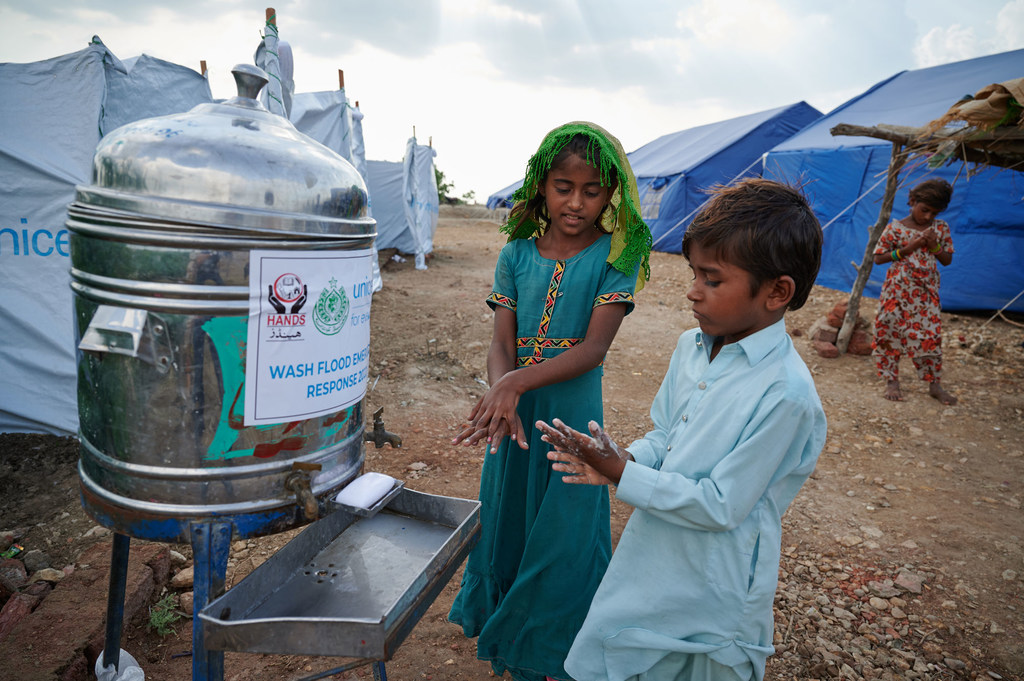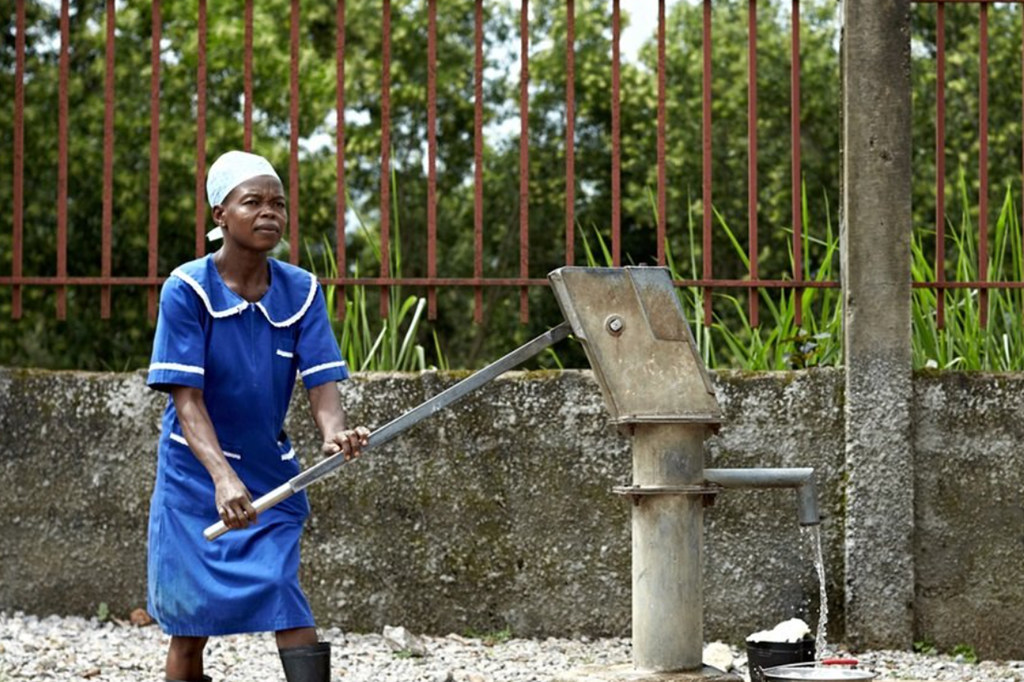For example, Burkina Faso has seen a ramping up of attacks on water facilities as a tactic to displace communities. Fifty-eight water points were attacked in 2022, and more than 830,000 people – over half of whom are children – lost access to safe drinking water in the last year.“Devastating storms, floods, and historic droughts are already destroying facilities and homes, contaminating water resources, creating hunger crises, and spreading disease. But as challenging as the current conditions are, without urgent action, the future could be much more bleak.” © WHO/Rob Holden

As a result, these countries also carry the heaviest burden of child deaths from diseases caused by inadequate WASH, such as diarrhoeal diseases. For example, six of the 10 have faced cholera outbreaks over the past year. Globally, more than 1,000 children under five die every day from WASH-related diseases, with around two out of five concentrated in these 10 countries alone.
Crises compounded by armed conflict
The study, released on Monday ahead of the historic UN Water Conference, reviewed household access to WASH services, the burden of WASH-attributable deaths among children under five, and exposure to climate and environmental hazards, revealing where children face the biggest threat, and where investment in solutions is desperately needed to prevent unnecessary deaths. Displaced children wash their hands outside a public toilet at a camp in Sindh Province, Pakistan. © UNICEF/Shehzad Noorani

Accelerated action is needed to ensure safe drinking-water, sanitation and hygiene for all.
Vulnerable to climate threats
All 10 countries are also classified by the Organisation for Economic Cooperation and Development (OECD) as fragile or extremely fragile, with the stresses of armed conflict in some countries threatening to reverse progress toward safe water and sanitation. The triple threat was found to be most acute in Benin, Burkina Faso, Cameroon, Chad, Côte d’Ivoire, Guinea, Mali, Niger, Nigeria, and Somalia, making West and Central Africa one of the world’s most water-insecure and climate-impacted regions, according to the analysis. Many of the worst-affected countries, particularly in the Sahel, are also facing instability and armed conflict, further aggravating children’s access to clean water and sanitation. “Africa is facing a water catastrophe. While climate and water-related shocks are escalating globally, nowhere else in the world do the risks compound as severely for children,” said UNICEF Director of Programmes Sanjay Wijesekera.